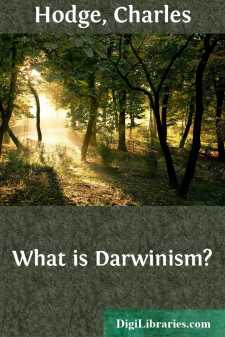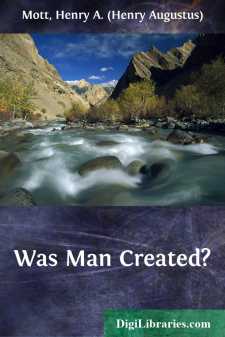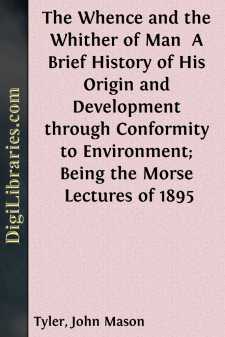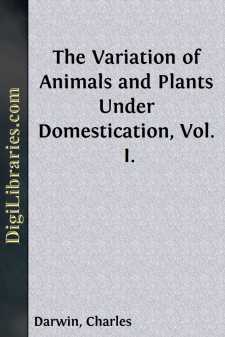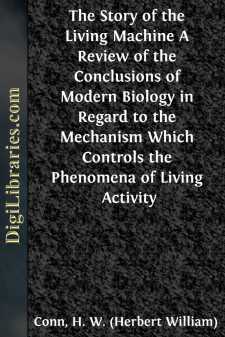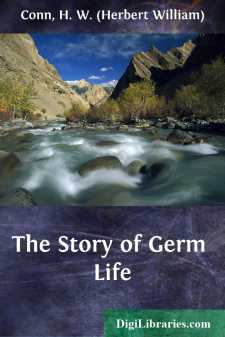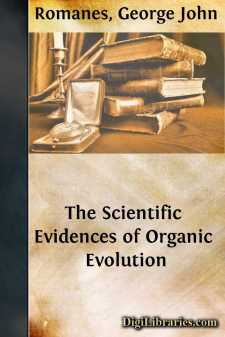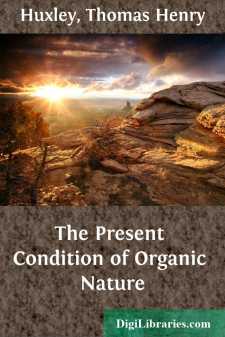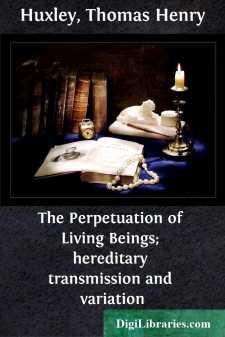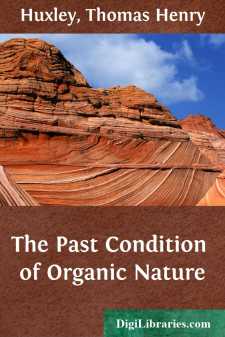Science
- Astronomy 18
- Biology
- Chemistry 13
- Electricity 1
- General 38
- History 6
- Light 1
- Paleontology 2
- Philosophy & Social Aspects 1
- Physics 3
- Relativity 2
- Study & Teaching 1
- Waves & Wave Mechanics 1
Biology Books
Sort by:
by:
Charles Hodge
WHAT IS DARWINISM? This is a question which needs an answer. Great confusion and diversity of opinion prevail as to the real views of the man whose writings have agitated the whole world, scientific and religious. If a man says he is a Darwinian, many understand him to avow himself virtually an atheist; while another understands him as saying that he adopts some harmless form of the doctrine of...
more...
PREFACE. This work was originally written to be delivered as a lecture; but as its pages continued to multiply, it was suggested to the author by numerous friends that it ought to be published in book-form; this, at last, the author concluded to do. This work, therefore, does not claim to be an exhaustive discussion of the various departments of which it treats; but rather it has been the aim of the...
more...
by:
John Mason Tyler
CHAPTER I THE PROBLEM: THE MODE OF ITS SOLUTION The story of a human life can be told in very few words. A youth of golden dreams and visions; a few years of struggle or of neglected opportunities; then retrospect and the end."We come like water, and like wind we go." But how few of the visions are realized. Faust sums up the whole of life in the twice-repeated word versagen, renounce, and...
more...
by:
Charles Darwin
INTRODUCTION. The object of this work is not to describe all the many races of animals which have been domesticated by man, and of the plants which have been cultivated by him; even if I possessed the requisite knowledge, so gigantic an undertaking would be here superfluous. It is my intention to give under the head of each species only such facts as I have been able to collect or observe, showing the...
more...
CHAPTER I. IS THE BODY A MACHINE? The problem before us in this section is to find out to what extent animals and plants are machines. We wish to determine whether the laws and forces which regulate their activities are the same as the laws and forces with which we experiment in the chemical and physical laboratory, and whether the principles of mechanics and the doctrine of the conservation of energy...
more...
CHAPTER I. BACTERIA AS PLANTS. During the last fifteen years the subject of bacteriology [Footnote: The term microbe is simply a word which has been coined to include all of the microscopic plants commonly included under the terms bacteria and yeasts.] has developed with a marvellous rapidity. At the beginning of the ninth decade of the century bacteria were scarcely heard of outside of scientific...
more...
THE SCIENTIFIC EVIDENCES OF ORGANIC EVOLUTION. Although it is generally recognised that the Origin of Species has produced an effect both on the science and the philosophy of our age which is without a parallel in the history of thought, admirers of Mr. Darwin's genius are frequently surprised at the ignorance of his work which is displayed by many persons who can scarcely be said to belong to the...
more...
THE PRESENT CONDITION OF ORGANIC NATURE. When it was my duty to consider what subject I would select for the six lectures [*To Working Men, at the Museum of Practical Geology, 1863.] which I shall now have the pleasure of delivering to you, it occurred to me that I could not do better than endeavour to put before you in a true light, or in what I might perhaps with more modesty call, that which I...
more...
The inquiry which we undertook, at our last meeting, into the state of our knowledge of the causes of the phenomena of organic nature,—of the past and of the present,—resolved itself into two subsidiary inquiries: the first was, whether we know anything, either historically or experimentally, of the mode of origin of living beings; the second subsidiary inquiry was, whether, granting the origin, we...
more...
IN the lecture which I delivered last Monday evening, I endeavoured to sketch in a very brief manner, but as well as the time at my disposal would permit, the present condition of organic nature, meaning by that large title simply an indication of the great, broad, and general principles which are to be discovered by those who look attentively at the phenomena of organic nature as at present displayed....
more...


